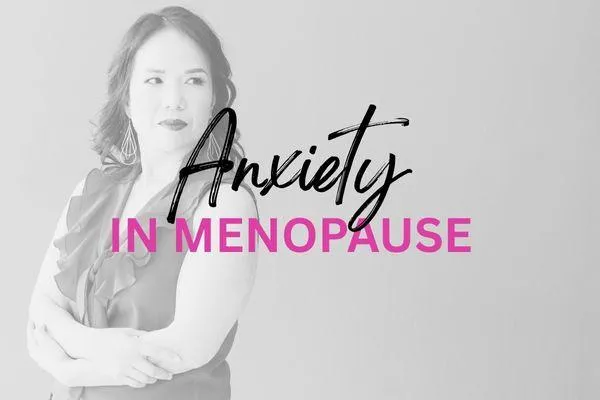
Anxiety in Menopause: Why It Happens and What You Can Do
Many women are surprised when menopause brings not just hot flashes or night sweats—but also a rise in anxiety. If you suddenly find yourself worrying more, feeling restless, or waking in the night with your heart pounding, you’re not alone.
The Biology Behind It
Hormones play a powerful role in brain chemistry. Progesterone normally breaks down into a neurosteroid called allopregnanolone, which boosts the calming neurotransmitter GABA. When progesterone fluctuates or declines, this soothing effect is lost. Estrogen also influences serotonin and dopamine—the mood and motivation chemicals. Without their steady support, women become more vulnerable to anxiety and mood shifts.
What It Feels Like
One of my patients shared: “I never used to be an anxious person, but now I wake at 3 a.m. with my heart racing for no reason.” Another described constant irritability and tension, saying, “It feels like I’m living in fight-or-flight mode.” These experiences aren’t character flaws—they’re rooted in hormone biology.

What Helps
Relief often comes through a mix of approaches:
Meals - stabilize blood sugar and support mood regulation.
Movement- exercise can help lower cortisol and improve anxiety
Mind - stress tools (deep breathing, mindfulness, gentle movement) calm the nervous system.
Meds - Hormone therapy can restore some of the lost balance and reduce anxiety.
The Bottom Line
If anxiety showed up for you in midlife, it’s not “just stress.” It’s your body adjusting to hormone changes. With the right care, you can feel like yourself again.
